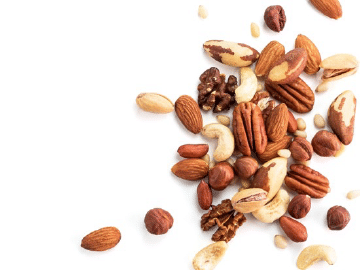Pregnant? Here is what is recommended to eat
You know that growing a baby is hard work (one never forgets that first-trimester fatigue!) and it’s so important to look after yourself and keep up your energy. The food you eat provides nutrients for you and your baby, so it’s also vital to help their growth and development with a varied and balanced diet. Aside from macronutrients, for example protein, carbohydrates and fats, you and baby also need vitamins, minerals and trace elements, also known as micronutrients. While you only need them in small amounts, they play a huge role in supporting the healthy growth and development of your little one.
The following nutrients are important for pregnant moms, and you can always chat to our careline to learn more and to find out about how to incorporate them into your daily diet.
Folic acid 1
Folic acid, a B vitamin, is important in red blood cell formation, and for the growth and functioning of healthy cells. Taking folic acid can reduce the risk of your baby being born with neural tube (brain and spinal cord) defects. Folic acid is especially important during the first trimester, and before you conceive too. You can find folic acid in vegetables (especially spinach, broccoli, fennel and white cabbage), legumes (lentils, beans, peas, chickpeas), wholegrains, fruit (strawberries, raspberries, oranges, bananas), nuts and dairy products.
Iron 1
During pregnancy, you need extra iron to help your body make more blood to supply oxygen to your baby. Iron is a key nutrient during pregnancy, and an important part of a balanced diet. It supports your baby’s developing brain and helps to maintain a healthy supply of oxygen in your blood. It also helps support the development of your baby’s immune system and helps to maintain your own health and wellbeing too. With so many roles to play for both you and your baby, your body uses more iron during pregnancy than usual.
Good sources of iron are beef, chicken and eggs. If you’re a vegetarian or vegan, you might want to chat to your healthcare provider or dietitian about ensuring you get enough iron and supplementing if necessary.
Useful tip!
Zinc 2
Zinc is important for tissue growth, and it also helps support your immune system. Zinc-rich foods include fortified cereals, red meat, beans, nuts, dairy products and whole grains.

Vitamin D 3
Iodine 4
Iodine is important for the normal functioning of the thyroid, which regulates the hormones that control your metabolism, heart rate, body temperature and other core body functions. Iodine also supports the healthy development of your baby’s brain and body. Sources of iodine include iodized salt, baked cod, plain yoghurt, low-fat milk and eggs.

Choline 5
Like folate, choline helps to develop your baby’s brain and spinal cord and has also been shown to have cognitive benefits. Good sources of choline are found in egg yolks, fish, legumes, lean red meat, poultry, nuts and cruciferous vegetables (broccoli or cauliflower)
Magnesium 6
About Prenatal Vitamins
While most of your nutrients should ideally come from food, your body needs extra iron, zinc, iodine, vitamin C, B vitamins, selenium and copper, so prenatal supplements are recommended. Especially folic acid supplementation is essential.
A good prenatal supplement should provide sufficient vitamins and minerals you require – ask your healthcare provider for a recommendation.
And remember…
You aren’t expected to always have the “perfect” diet, and if you don’t get it 100% right every day, don’t be hard on yourself. You’re still doing a great job, even when having a bowl of ice cream!
1 WHO | Daily iron and folic acid supplementation during pregnancy Consulté le 27/05/2021
2 WHO | Zinc supplementation during pregnancy Consulté le 27/05/2021
3 WHO | Vitamin D supplementation during pregnancy Consulté le 27/05/2021
4 WHO | Iodine supplementation in pregnant and lactating women Consulté le 27/05/2021
5 Choline – Health Professional Fact Sheet (nih.gov) Consulté le 27/05/2021
6 Gerry K. Schwalfenberg et al. The Importance of Magnesium in Clinical Healthcare. Scientifica (Cairo). 2017; 2017: 4179326. Consulté le 27/05/2021
BA21-260


